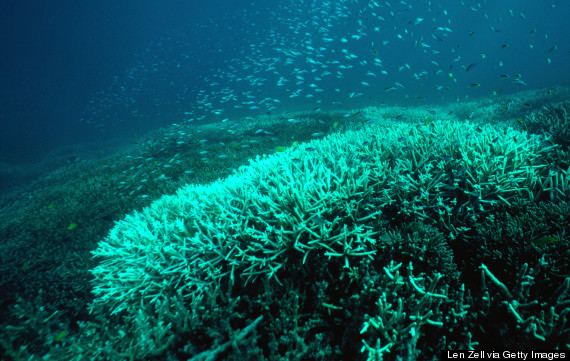
The Great Barrier Reef may be in serious trouble.
Unless immediate action is taken, the famous coral reef system will be unable to recover from the "irreversible" damage that climate change will wreak on it by 2030, a new report out of Australia warns.
Published by the World Wildlife Fund-Australia, the University of Queensland report paints a bleak picture for the future of the ecosystem.
"If we don't increase our commitment to solve the burgeoning stress from local and global sources, the reef will disappear," the report, prepared for Earth Hour's upcoming annual event, states. "This is not a hunch or alarmist rhetoric by green activists. It is the conclusion of the world's most qualified coral reef experts."
The reef has already experienced extensive damage in the past few decades from tropical storms and other harmful events, which can lead to coral bleaching, a condition that occurs when stress from changes causes coral to weaken and turn white. A 2012 report indicated that 50 percent of the Great Barrier Reef has disappeared since 1985.

Bleached coral, as seen here at the Great Barrier Reef in Queensland, occurs when extreme temperatures, increased UV rays, disease, chemicals, salinity and exposure to air and rain at extreme low tides occur.
This decline is set to increase in the next 16 years, based on current estimates of carbon dioxide emissions, warn coral reef biologists Dr. Selina Ward and Ove Hoegh-Guldberg.
If things do not drastically change, the condition of the reef in 2030 will be "getting close to what we understand to be some of the limits in terms of rapidly calcifying reefs," Hoegh-Guldberg, who serves as the director of the university's Global Change Institute, told The Sydney Morning Herald.
In order to grow and thrive, coral reefs undergo calcification. But with warming waters and increased carbon pollution, the Great Barrier Reef is becoming weaker and less likely to reproduce.
"If we continue as we are, we’ll get more degradation and more bleaching events," Ward told The Guardian. "If we want to save the Great Barrier Reef we need to act immediately and make dramatic reductions in carbon pollution. We need to move away from fossil fuels."
